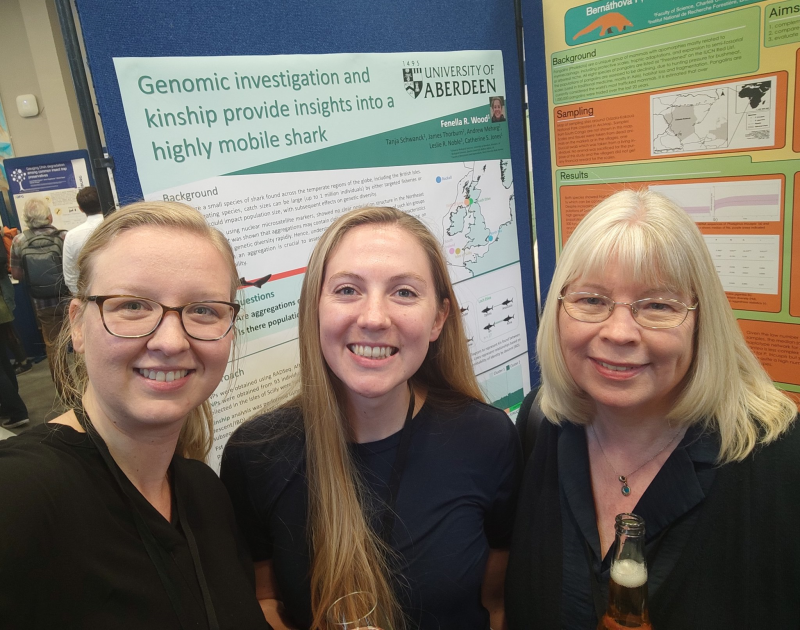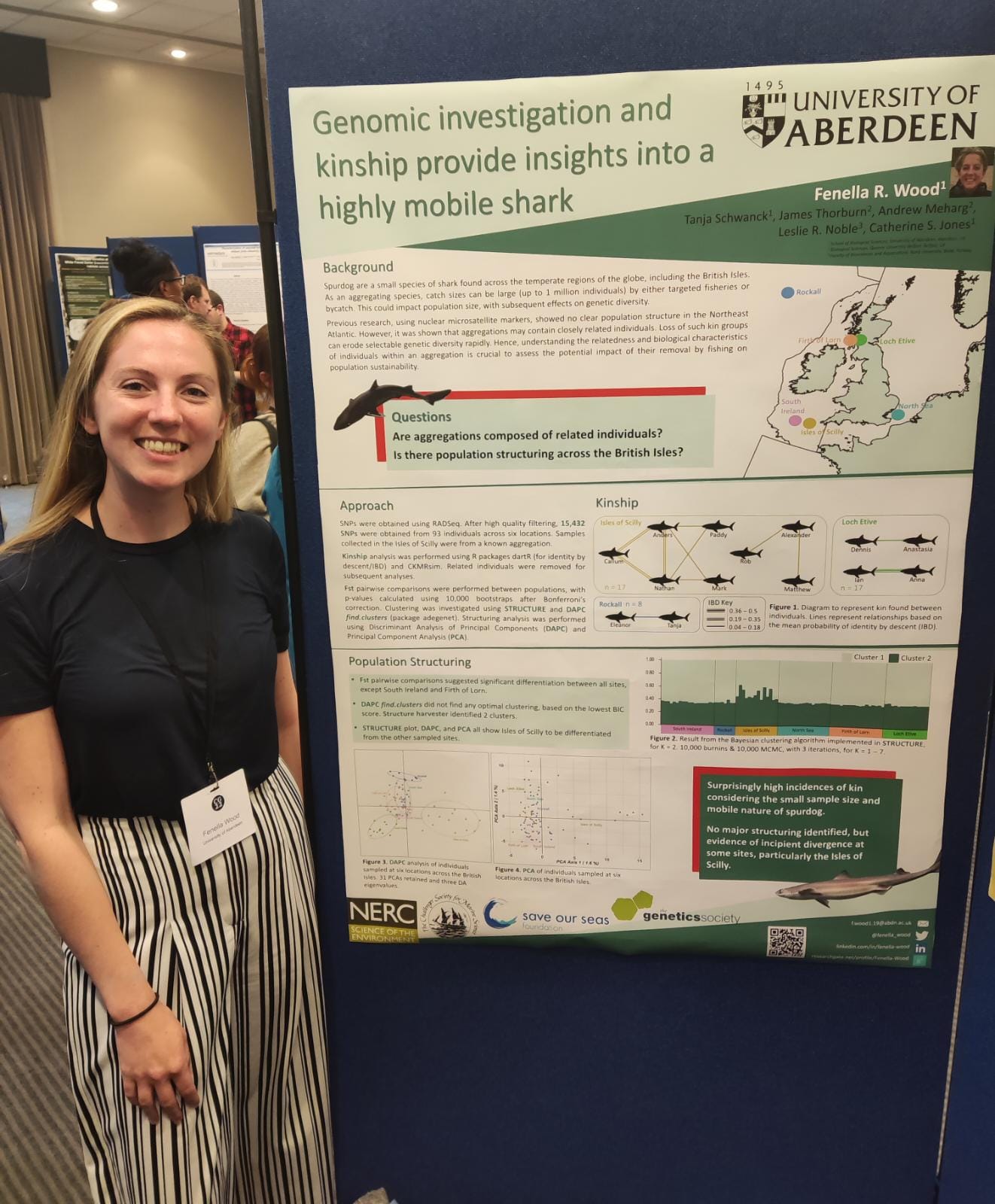European Conservation Genetics Meeting 2022, Edinburgh
Fenella Wood
School of Biological Sciences, University of Aberdeen

Thanks to the Challenger Society for Marine Science Travel Award, I was able to attend the 5th European Conservation Genetics Meeting (ConsGen22), held for the first time in the UK, in Edinburgh (30th Aug – 1st Sep). This was an amazing opportunity to finally meet in person and avoid the dreaded zoom calls!
Day one opened with a workshop held by oxford nanopore technologies, which included a live demonstration on how to use the MinION, as well as three speakers showing how invaluable the equipment has been from identifying species in the illegal wildlife trade to sequencing in remote environments such as the Artic and the Amazon.
The packed schedule of the conference followed, where there were multiple themes of the conference, mostly split between technology and applications, but also collections and policy. Utilising museum specimens in population genetics was an area of research that I was less familiar with, and it was so fascinating to see how these specimens could be used to shed light on historical and contemporary genetic patterns, as well as highlighting the importance of these collections as an extremely importance resource. Policy was another interesting area, as although we still have a long way to go, genetics is starting to be mentioned within national and international policy, most notably the inclusion within the Convention on Biological Diversity. Particularly highlighted by the plenary given by Professor Mike Bruford, telling the story as to how genetic diversity has been used in conservation planning until now and its essential role. It was inspiring to see genetic research impacting conservation action.
This was the first time I attended a conference focused purely on genetic research. It provided the opportunity for me to speak with other researchers, outside of my research group, about methodologies and analyses. It was so useful to discuss the preliminary results I presented as a poster with others, gaining valuable feedback and suggestions on how I could progress with my analyses. These discussions were invaluable and something I probably wouldn’t have experienced in such depth at an online only conference, so I feel very fortunate to have been able to attend the conference in person with the financial support provided by the Challenger Society.
I would like to thank the organising committee, as they organised an incredible conference (with amazing food) hosted at the University of Edinburgh, but also with fun evening activities (including a ceilidh) planned at both the Royal Botanical Garden Edinburgh and Edinburgh Zoo.
Thank you to the Challenger Society for supporting my attendance at this fascinating conference!
Profile
I am a fourth year PhD student at the University of Aberdeen studying spurdog aggregations using genomic tools. I have a particular interest in applied conservation genetics and have also worked in environmental DNA and DNA metabarcoding at the Zoological Society of London, Marine Biological Association, and Cardiff University. Prior to my molecular work I worked at the Bimini Biological Field Station Foundation, where my love of sharks began.
Latest News
Royal Society Publishing Photography Competition 2025
Please see a message from the Royal Society below:
We are delighted to announce that the 2025 Competition is now open for entries until 15 August for a chance to win £1000! The competition celebrates the power of photography in conveying the wonder of science happening all around us and photographs can be submitted in the categories of: Astronomy, Behaviour, Earth Science and Climatology, Ecology and Environmental Science, and Microimaging.
The competition is free to enter and open to anyone studying or working in science at graduate level or above. Category winners will receive a one-year membership to the Royal Photographic Society and the overall winner will receive a grand prize of £1,000. Find out more: https://bit.ly/RSPphotocomp
October 2025 MEDIN Workshop: Marine Data Management, Governance and the MEDIN toolset
The Marine Environmental Data and Information Network (MEDIN) are pleased to announce that registration is now open for the next occurrence of our popular free online training workshop: ‘Marine Data Management, Governance and the MEDIN toolset’ on the 13th – 17th October 2025 on OceanTeacher Global Academy.
Marine Data Management, Governance and the MEDIN toolset
The Marine Environmental Data and Information Network (MEDIN) and OceanWise are delighted to invite you to attend our popular free online training workshop: ‘Marine Data Management, Governance and the MEDIN toolset’ on the 19th – 23rd of May 2025.
